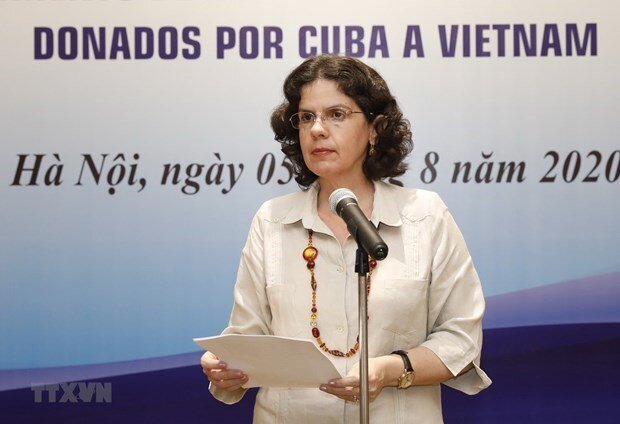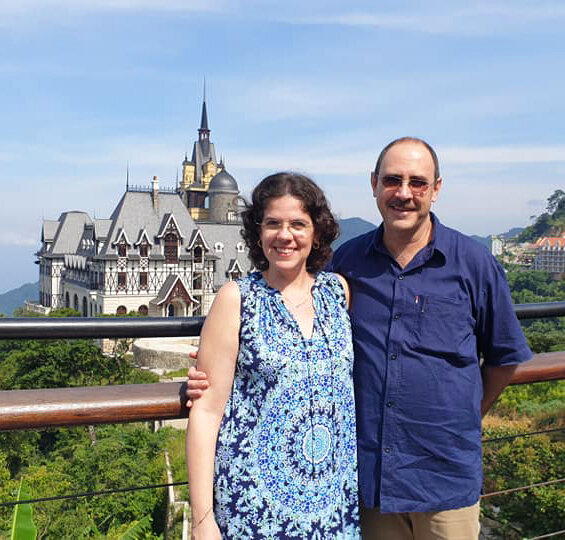Cuba Expected To Install New Ambassador In Washington- First Woman
/United States Department of State
Washington DC
Diplomatic Corps Order of Precedence: In accordance with relevant Articles of the Vienna Convention on Diplomatic Relations, heads of diplomatic missions appear on the Diplomatic Corps Order of Precedence list in their respective classes and in the order of the date and time of assuming their duties.
ORDER OF PRECEDENCE: Reported to the Office of the Chief of Protocol as of January 18, 2021
CHARGE D’AFFAIRES AD INTERIM FOR BILATERAL MISSIONS
Rodney Amaury Gonzalez Maestrey (12/21/20)
The Washington Diplomat
Washington DC
22 December 2020
“New appointments: After eight years as Cuba’s top diplomat in the United States- a period that saw the dramatic re-establishment of diplomatic ties between Washington and Havana after a 54-year hiatus- José Ramón Cabañas Rodríguez is going home. He will be replaced by Lianys Torres Rivera, Cuba’s current ambassador to Vietnam. Torres, the first woman ever to head Cuba’s mission in Washington, will take up her new post as chargé d’affaires upon approval of her visa, and once international flights resume. Torres graduated from Havana’s Instituto Superior de Relaciones Internacionales in 1994 and has been posted in Hanoi since September 2017. As ambassador there, Torres has been instrumental in securing Vietnamese aid to Cuba to help fight COVID-19.”
The Biden Administration will promptly approve in 2021 H.E. Lianys Torres Rivera, Ambassador of the Republic of Cuba to Vietnam, as Ambassador of the Republic of Cuba to the United States with the designee included in the first groups to the Oval Office at The White House to present their credentials to The Honorable Joseph Biden, President of the United States.
The decision by the Biden Administration to accept and to accept promptly a replacement to manage the Embassy of the Republic of Cuba in Washington DC should not be mischaracterized, misunderstood by those who support a return to the commercial, economic, and political bilateral landscape in existence prior to 20 January 2017.
The symbolism will represent more about what can be rather than what was in the bilateral relationship. The Biden Administration message- there can and should be official dialogue, but that dialogue needs to amount to more than more dialogue and, critically, the Republic of Cuba must address internal issues and issues relating to Venezuela.
United States companies, who have been predictably sidelined since 2017 by Trump Administration decisions, remain hopeful for a change in bilateral atmospherics, telemetry and, importantly, for the government of the Republic of Cuba to continue with its commercial, economic, and political transformation which will provide opportunities for United States companies to have more than a presence in the incoming visitor marketplace.
There remain from 2015 commercial opportunities for product and service importation, product and service exportation, and product and service offerings authorized during the Obama Administration which the government of the Republic of Cuba neither encouraged nor approved.
Crucial for the new Ambassador of the Republic of Cuba to the United States to embark upon a structured outreach to those who do not support a functioning bilateral relationship between the United States and the Republic of Cuba. Resist the natural gravitational pull to engage solely with individuals (public sector and private sector) and companies and organizations who provide positive messaging reinforcement. The following statements remain instructive to projecting the baselines for Biden Administration commercial, economic and political policies relating to the Republic of Cuba:
The Miami Herald
Miami, Florida
29 October 2020
Biden also made direct appeals to Cubans and Venezuelans, many of whom live in South Florida after fleeing their countries. “We have to vote for a new Cuba policy as well,” Biden said. “Trump is the worst possible standard-bearer for democracy in places like Cuba, Venezuela, North Korea. Cuba is no closer to freedom and democracy today than it was four years ago. Trump loves to talk tough, but he doesn’t care about the Cuban and Venezuelan people. He won’t even grant Temporary Protected Status to Venezuelans fleeing the oppressive Maduro regime. I will, but we have to vote.”
The Miami Herald
Miami, Florida
9 September 2020
“It’s fair to say that everybody shares a little bit of disappointment about the direction that the government in Cuba chose to go” after the normalization of U.S.-Cuba ties, [The Honorable John] Kerry [United States Secretary of State 2013-2017] told me. He added that, “Cuba seemed to harden down after the initial steps were taken.” Kerry said that while almost six decades of U.S. trade sanctions on the island failed to bring about democratic changes, and Trump’s recent sanctions should be reversed, a Biden presidency would probably “re-invigorate” America’s human-rights policies on Cuba. “I think the vice president, as president, will very much want to make it clear that human rights is at the forefront of American foreign policy, that Cuba will need to be called out on some of the human-rights abuses,” Kerry told me.
Diplomatic Background
Ambassador Cabanas had since 2012 served as Chief of the Cuban Interests Section in Washington DC. He retained the title of ambassador due to posting in Austria from 2001 to 2005. On 17 September 2015, he presented credentials to The Honorable Barack Obama (D), President of the United States (2019-2017) and became Ambassador Extraordinary and Plenipotentiary of the Republic of Cuba to the United States.
The last United States ambassador to the Republic of Cuba was The Honorable Philip Bonsal (1903-1995) who arrived 3 March 1959 and departed 28 October 1960. There had been twenty ambassadors from 1902 to 1960.
Since 1960, according to the United States Department of State, there has been one Chargé d’Affaires ad interim, fourteen Principal Officers, and two Chargé d’Affaires.
There are approximately 11.3 million Republic of Cuba nationals residing on 780-mile-long archipelago ninety-three miles south of from Key West, Florida. There are approximately 2.1 million individuals of Cuban descent residing in the United States with the majority in Florida and New Jersey.



